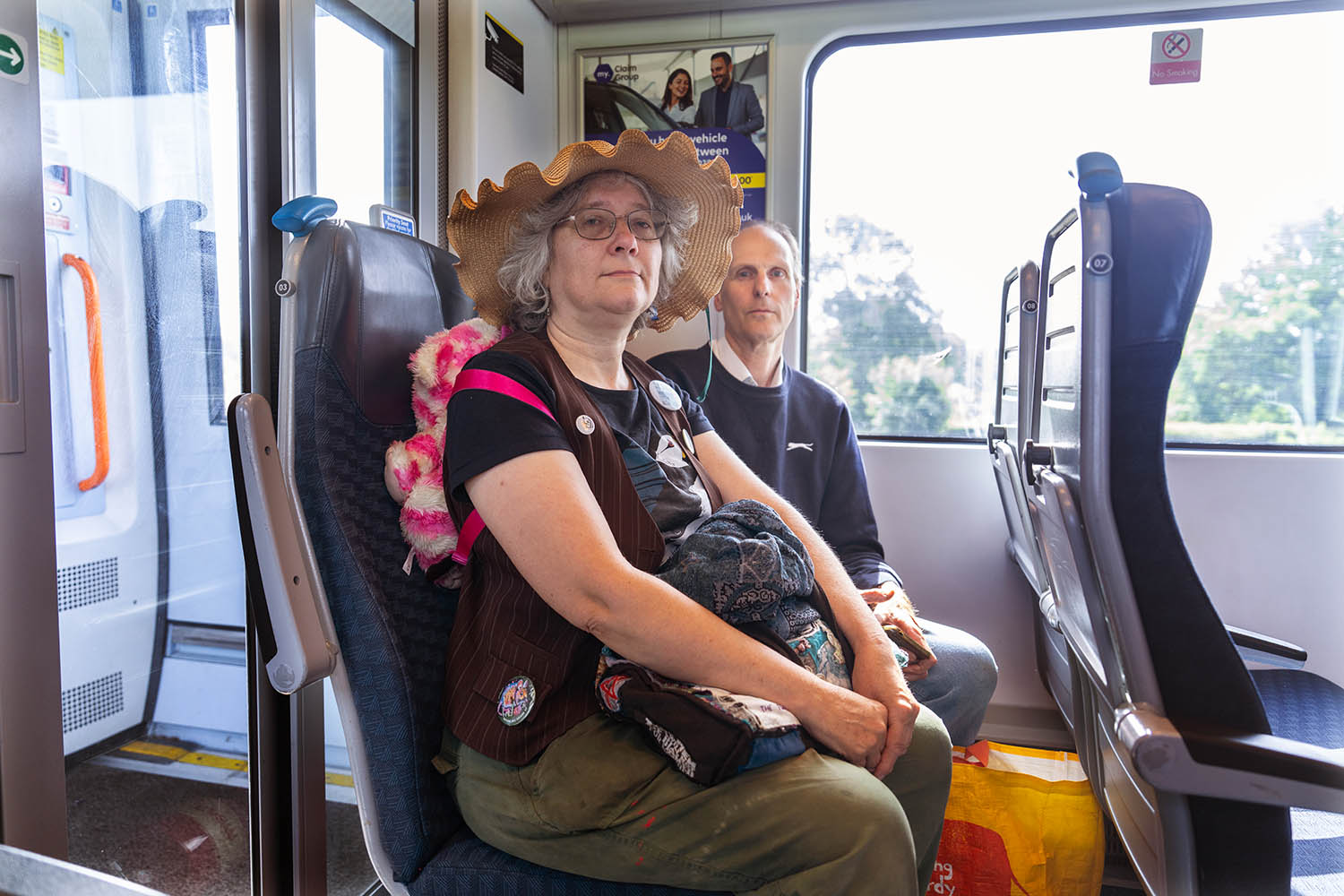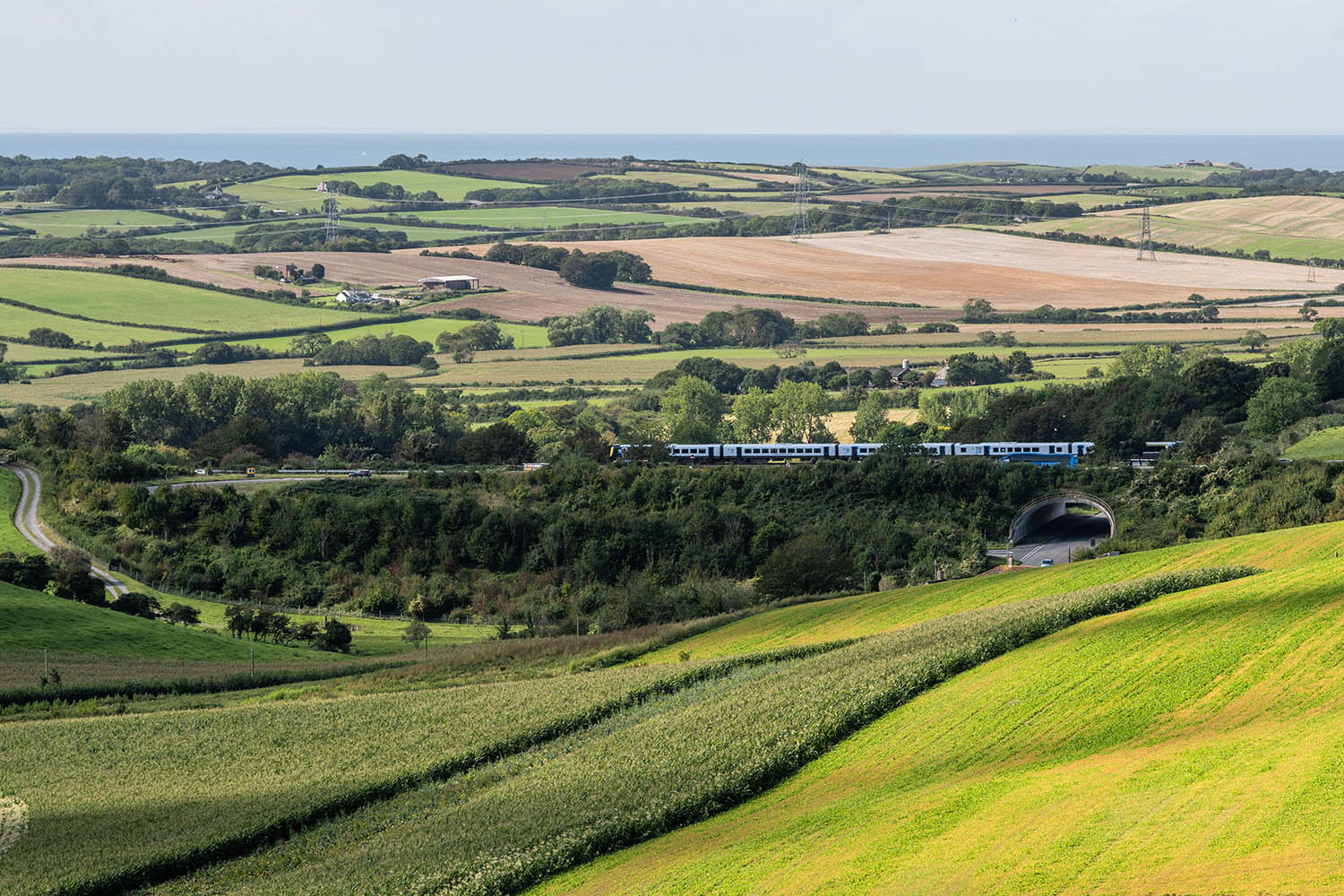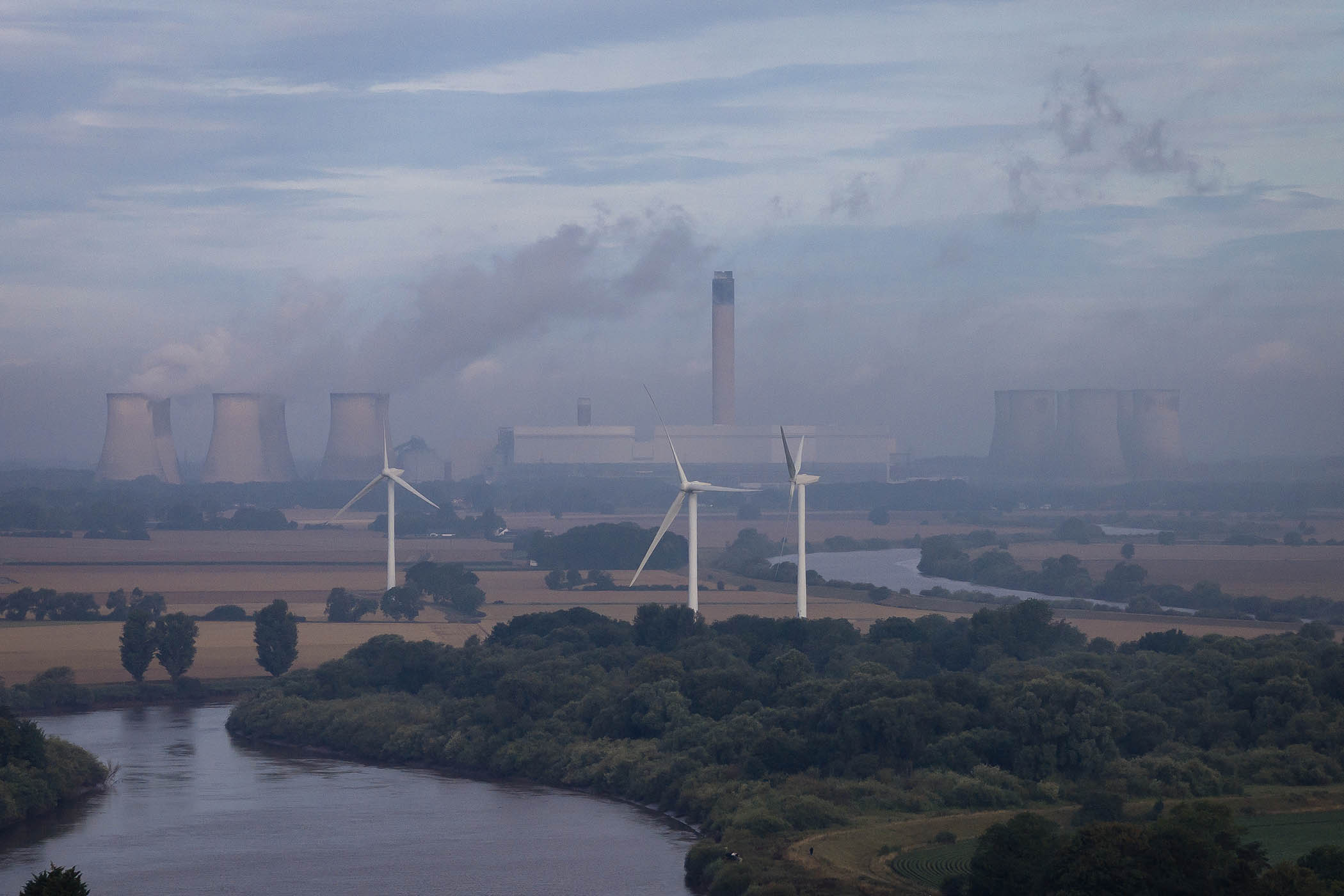There’s a fight going on at Weymouth station. Not a fair fight – it’s man versus seagull and the bird has pulled off a fly-by heist, swooping down from the station roof to nab a tasty-looking bag from its victim’s hand.
The gull is pecking at a pharmacy prescription – which it seems to think is full of chips – while the furious man is throwing things at it. Luckily, a helpful stationmaster is on hand to retrieve it.
The passengers of South Western Railway (SWR), which runs the line from Waterloo to Weymouth, face plenty of problems – not all of which can be solved so easily. From Sunday, they will also be the government’s problems, as SWR becomes the first company to come into public ownership under Labour’s push to renationalise the railways.
For years, frustrated commuters – and about 60% of the British public, according to polls – have believed that nationalisation would solve the country’s rail problems, from delays and high prices to equipment failures.
Now Labour is putting this theory to the test. But will it fix anything?
SWR is a decent-sized proving ground. The network, currently managed by First Group and MTR, has more than 5,000 employees and runs nearly 1,600 trains a day on lines from London Waterloo to Bournemouth, Reading, Exeter and Weymouth.
With 153m journeys a year – 83% of them on time compared with a national average of 85% – it’s the UK’s fourth-largest operator.
Labour’s plan is to create Great British Railways (GBR), combining all 14 rail operators with Network Rail to reconnect wheel and rail, an idea first mooted by Chris Grayling in 2018. The government is taking ownership of each company only when the franchises expire. SWR is the first under Labour (four others – LNER, Northern, TransPennine Express and Southeastern – are already in public ownership). The last franchise ends in October 2027, a long time to wait, even for commuters.
On the Waterloo to Weymouth train, passengers are clear about the changes they want. Madison Smith has been travelling to Hertfordshire via London to see family every couple of months for 15 years. “The cost is obviously a major thing,” she says. The roads are miserable, but her return fare of £82, including travelcard discount, is also painful. “If my partner and I come up together, it does not make sense to take the train,” she says, so they drive instead.
British trains are among the most expensive in Europe, and ticket prices across the rail network rose by 115% from 2004 to 2024, much faster than inflation, according to data from the Office of Rail and Road.
Newsletters
Choose the newsletters you want to receive
View more
For information about how The Observer protects your data, read our Privacy Policy
But problem one for Great British Railways will be that income from ticket sales has not kept up. Revenues plunged after 2021 with the adoption of hybrid working, and taxpayers have since stepped in. Fares now make up only half the cost of running the railways. In 2023-24, railways across the UK received £12.5bn in subsidies, about three times as much as before the pandemic but a similar amount as spent in France and Germany. Labour said in its manifesto that renationalisation can save £150m a year in fees charged by train operating companies, and eliminate further costs including shareholder dividends, duplication of management and the cost to DfT of running the franchises..

Ziggy Woodward and John Curtis ride the train from Bournemouth to Weymouth
This stretch of the line, running past Dorchester through the heaths and woods of Wareham Forest, needs investment. Most sections are single track, a legacy of Richard Beeching’s 1960s cost-saving recommendations, and that means trains get stuck behind each other if there’s a problem. If the rolling stock develops a fault, a line needs repair or someone trespasses, the electrified rail needs to be powered down. Powering back up takes longer because each train has to be done in sequence to avoid tripping the power network.
It’s worse for the Exeter branch. That line relies on 35-year-old diesel trains and suffers from the effects of privatisation’s fragmentation. The repair shop near Exeter is part of Great Western Railways, while the one at Salisbury is SWR’s. “So if a SWR engine has a problem in Exeter, it has to go to Salisbury, and if a GWR engine fails at Salisbury, it’s got to go to Cardiff or Bristol,” says Bruce Duncan, chair of the Salisbury to Exeter Rail Users Group. Under GBR, Duncan hopes there might be more joined-up thinking, although he is not optimistic.
At Southampton, Ziggy Woodward and John Curtis are on a day trip by train and bus to Swanage. Woodward is part of the Friends of Bitterne Station group, on a branch line towards Portsmouth. They hope trains will start running half-hourly rather than hourly, and that the Bitterne station community hub, which transformed the derelict station building into a cafe, will continue to get funding.
“Certainly, we need better facilities for people who are disabled,” she says. “And there needs to be better connectivity at transport nodes. Make it more integrated and, hopefully, more people will use trains.”
Britain’s history as a pioneer of rail is evident in the spaghetti strands of SWR’s network map, which includes two heritage railways. The UK has 173 of them, running about 800 steam locomotives – a combined figure larger than Avanti West Coast’s fleet, but probably fewer than the number of nostalgic TV shows featuring Michaels Palin or Portillo or Thomas the Tank Engine.
The 200th anniversary of Britain’s first railway, the Stockton and Darlington, arrives in September, and more than 350 events are planned to celebrate it. Yet some in the industry think history may be holding us back. The temptation to match the grand Victorian stations at King’s Cross, Birmingham New Street and Liverpool Central makes new-builds, such as at Euston, much more expensive propositions. Contrast that with the European utilitarianism of near universal electrification and identikit concrete-and-steel stations that are quicker and cheaper to build.
‘Cost is a major thing. If my partner and I come up together, it doesn’t make sense to take the train’
‘Cost is a major thing. If my partner and I come up together, it doesn’t make sense to take the train’
Madison Smith, passenger
At Winchester, Helen Gillingham interrupts her journey to Southampton Airport to extol the Swiss approach. “You can get all the way up into the Alps without stopping or changing,” she says. “We loved it when we lived there.”
Her experience of simplified ticketing is a contrast to the staggeringly complex UK system, with 55 million different fares, that confuses even railway executives. “Whether or not nationalisation is right, I’m not sure. There should be reform, but there should be some sort of subsidy so that trains are for everybody.”
It may not be much of a consolation for delayed passengers, but although the British railways are not yet great, they are pretty good by international standards. Analysis by campaign group Transport and Environment of 27 European train operators last year rated GWR as the sixth most reliable, ahead of SNCF in France and Deutsch Bahn in Germany. A 2021 paper for the European Commission put the UK as the fourth best-performing network in Europe.
But passengers who think things have been getting worse are right. There has been a gradual decline in punctuality since 2011, according to the Office of Rail and Road, with a temporary improvement during the pandemic as fewer people travelled. Now SWR punctuality has fallen below the average for England.
A survey by Transport Focus, the independent watchdog, also found that just 44% of SWR passengers were satisfied with value for money.
“Passengers on South Western Railway told us that their key priorities for improvement are more punctual, reliable journeys, and better value for money,” Natasha Grice, director for rail at Transport Focus, says. “Passengers will want to see a smooth transition to public ownership which delivers on these key priorities.”
This morning, at 6.14am, the first SWR train under the Great British Railways livery left Waterloo, and the first passenger was Heidi Alexander, the transport secretary.
It was "railway history in the making," she said at a launch event a few days earlier, adding that her aim was "fewer cancellations and simpler tickets".
The minister said she "would love" to bring down ticket prices, but couldn't promise to "at the moment". She also had "no intention" of taking away franchises of the no-frills open access operators, such as Lumo, Hull Trains and Grand Central, that cater for under-served routes, but she would "have to consider the wider impact" on the network.
And to SWR passengers who told the Observer they were frustrated by the lack of refreshments on board, she said she had "heard loud and clear" from MPs along the route that travellers wanted the trolley service back. "I will talk to the new managing director about what the possibilities are there, because I know it would make a very popular return were it to come back," she said.
Alexander also promised that she would allow SWR's new managing director, Lawrence Bowman, to get on with the job.
"I don't want to be the Fat Controller of the railways," she said. "I want experts to be running this railway. That is the way that passengers will see an improvement in services."
The transport secretary and the passengers are all hoping that GBR isn’t for the birds.
Additional reporting by Daniel Puddicombe
Photographs by Antonio Olmos/The Observer



